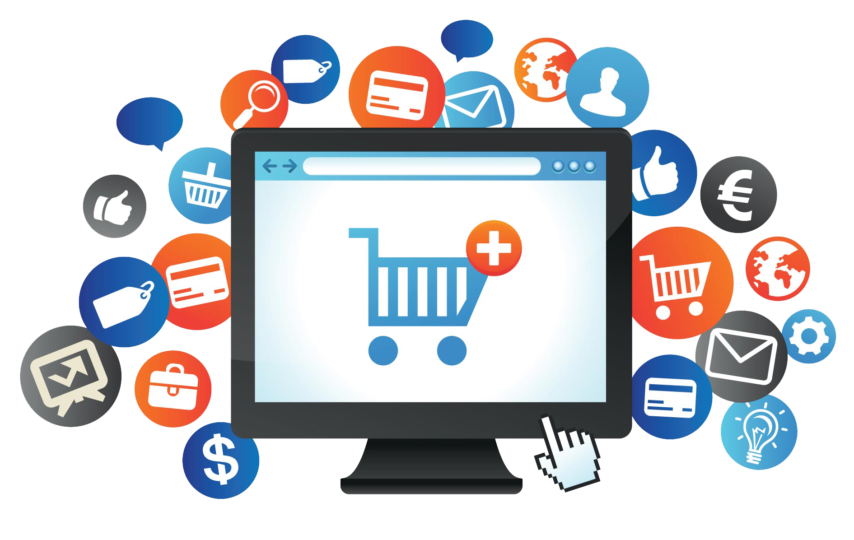Like many small business owners, are you also planning to sell your products or services online? That’s great! Because starting selling online is a fantastic way to multiply your customer reach and increase brand awareness. And everyone wants to double their profits after all.
However, just planning to sell won’t help. You will have to convert your idea into reality. For that you will need an ecommerce platform – a software application that powers an online business to run their website, handle sales and manage operations.
Choosing one out of the long list of ecommerce service providers can be a daunting task; it can take up a lot of time to find the right one.
If you are a small business who wants an easy to use platform to provide excellent online store experience without hurting your pocket, then you are in the right place. Through our extensive research we have come up with a list of best ecommerce platforms for small and medium business.
Our research was based on the inputs provided by our online users who are looking to create a stunning online store. We asked them about what is important to them? What is the price that they are willing to pay for an online store front? What features do they want? We combined these data and came up with the below list.
- Shopify – This is undoubtedly the most popular ecommerce solution in the market with more than a million businesses. It is a great option for beginners and small to medium size companies. Whatever you need to start an online store viz. storefront design,content marketing to content performance analytics are readily available into the platform. A basic Shopify cost will be $29/mo. Verticals supported by Shopify are:
- Consumer Electronics
- Home Furnishing
- Fashion
- Food and Beverage
- Cosmetics
Some of the best features available with Shopify are unlimited product listings, real-time sales statistics, inventory tracking, AI/Customization, Custom domains, more than 70 themes/templates available. You can expect 24×7 chat support, online help center and community forums.
- Squarespace – It is a SaaS company that provides website and ecommerce store building and hosting to customers. It is typically used and appreciated more by small business owners with general ecommerce requirements. However, this platform is not suitable for businesses that have advanced online retail requirements. Verticals supported by Squarespace are:
- Cosmetics
- Art & Design
- Fashion
- Food and Beverage
- Gaming
For personal usage, one will have to pay $16 per month and for business needs you will have to pay $26/month.
With Squarespace you will get ecommerce extensions like digital products, SEO tools, gift cards, product import/export, limited integration options, Upselling and cross-selling, personalized products.
- Big Cartel – It is an ecommerce platform by artists, for artists, meaning this platform focuses on creators who want to sell artwork, jewelry, clothing and photo prints. It is a great alternative for Etsy. This Saas builder is easy to use and straightforward. Verticals supported by Big Cartel are:
- Clothing
- Art & Design
- Photographers
The gold version of this platform is absolutely free. For Platinum, Diamond and Titanium, you will have to spend $9.99/mo, $19.99/mo, and $29.99/mo respectively. While Big Cartel provides minimum support options, their responses are quick. Some of the support provided by Big Cartel are: email support, social media support, recorded webinars and online support.
Some of its site building features are:
- Limited tax calculation
- Dashboard
- Online checkout
- Multiple selling channels
- SEO tools
- Plugins
- Inventory Management
- BigCommerce – This is the right choice as it has the capacity to handle huge stores that Shopify sometimes finds it tough to manage. BigCommerce also provides fantastic SEO performance. It provides a single-page checkout experience, which could boost your conversion. However, it lacks the one-click upsells that Shopify does amazingly.
With BigCommerce you can expect high customizability and continuous top notch customer support. Brands like Carolina Panthers, Di Bruno Bros and Hincapie Sportswear use BigCommerce to sell their products online. Some of the verticals supported by BigCommerce are:
- Fashion
- Automotive
- Food & Beverage
- Manufacturing
The standard pricing for BigCommerce is ($29.95/mo) – $50,000 annual sales limit. Other than this, they provide BigCommerce Plus, Pro and Enterprise accounts.
With BigCommerce you can expect Email and phone support, Online Help Center, Community Forums and 24-hour live chat. Some of the site building features offered by Magento are reporting, multi-currency sales, ratings and reviews, gift cards, unlimited product listings, unlimited bandwidth and file storage, custom domains, integration with shipping, 12 free themes and 160+ paid themes, and POS software etc.
- Magento – It is one of the renowned open-source ecommerce platforms in the world. It is best for small or medium businesses. In fact if you are looking for a reliable ecommerce platform for startups, Magento is the one. The platform is really powerful and has a library of more than 5,000 extensions. However, it requires a longer development time and a larger budget as compared to its competitors. It is also a smart choice for businesses because it can handle a more complex interface than Squarespace. Some of the popular ecommerce brands using Magento are Just for Men, Helly Hansen, HP Inc.
Some of the verticals supported by Magento are:
- Home Furnishing
- Sporting Goods
- Fashion
- Consumer Electronics
- Cosmetics
- Food & Beverages
With Magento you can expect Online Help Center and Community Forums. Some of the site building features offered by Magento are mobile-optimized shopping, catalog management, site search, global selling, instant purchase, integrated check-out, payment and shipping.
Magento Commerce is the enterprise-level solution. The prices for Magento range between $15,000 to $50,000 annually.
To conclude,
There is no ‘single’ best ecommerce platform available today. EVery business is unique and so are its needs and demands, hence, depending on their requirement, budget and manpower they can choose the online retail application that best suits them.













